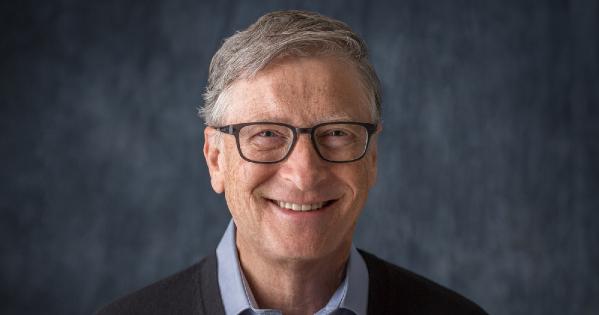Gates Stresses Optimism in Face of Climate Crisis

Bill Gates knows the conversation around climate change can tilt negative.
And there’s plenty of negative to go with the topic — rising seas, hotter temperatures, coral reef degradation, wildfires, and massive migration.
“If you just present that endless list of super negative things, it kind of brings people down in a way that they don't want to pay attention to it... you have to give them a sense of hope,” Gates said.
He painted both optimistic and realistic pictures of climate change during an hour-long virtual conversation Wednesday with CBS News correspondent Michelle Miller and students from American, George Washington, Georgetown, and Howard universities. The event came a day after the release of his new book, How to Avoid a Climate Disaster: The Solutions We Have and the Breakthroughs We Need.
Students asked about the scale of change needed to combat climate change, but Gates pointed to innovations that are making a difference now. He said plant-based burgers and the growth of electric vehicles prove meaningful change need not take decades. Consumers who buy these products are doing their part to push innovation forward, Gates said.
Access to plant-based meat substitutes has expanded in recent years and can be widely found in local grocery stores and increasingly on fast-food menus. Gates said he thought electric cars would be priced about the same as gasoline cars in the next 10 to 15 years. He referred to those examples as a zero-green premium, when the cost of an alternative doesn't far exceed an original, less-environmentally safe option.
“At the end of the day, affordability is the metric that we've got to win,” Gates said.
Gates also embraced the return to the Paris Climate Agreement by the Biden administration. He said citizens expect governments to plan for disasters, pointing to building code adjustments to protect against earthquakes. He said many governments haven’t done such large-scale planning for climate change.
“This is not a cause where you can make progress for four years, stop for four years, make progress for four years, and expect to meet your deadline,” Gates said. “We have to use every year and have such a clear signal to the private sector that, ‘Yes changing your cement plant...our policies will make that a smart decision.’”
But changing the cement plant could prove difficult.
When most people think of emissions, Gates said they point to electricity and transportation. But there’s a lower awareness of the effects of agriculture, cooling and heating buildings, and manufacturing. Gates said manufacturing comprises the largest category of emissions and presents the biggest challenge. Steel and cement companies play giant manufacturing roles. The cost difference between producing green or carbon-neutral steel and regular steel is gigantic, in contrast to the cheap cost of plant-based burgers versus meat burgers, he said.
"The book just raises people's awareness about the breadth,” Gates said. “I think that'll help them not think this is going to be easy to do, but my goal is also that people know that it's doable. It's not impossible, but it requires a lot of innovation to bring green premiums down.”
Gates admitted he’s not the perfect messenger for climate change. He’s aware of his personal emissions from traveling. But he pointed to his purchase of green aviation fuel and investment in carbon air capture company Climeworks. He also created Breakthrough Energy Ventures, a group that invests in innovative companies.
"How you can get products down the learning curve like we've seen with solar panels...wind has gotten really cheap, and so we need that for the tough areas as well,” Gates said. “My breakthrough energy effort alone isn't going to do the trick. We really need the government. We need the advocacy, but I'm trying to do my part because I've just seen the damage that's already taking place.”
AU junior Linnea Capobianco asked about combating climate change disinformation, and Gates said he has seen a diminished level of climate deniers. He said industries supporting disinformation have stopped contributing to the spread of disinformation because the evidence of the human role in climate change is so strong. Gates praised young people for embracing the challenges of climate change. He said they are taking the lead in pushing for greener products.
Gates challenged students to know where they spend their money, to support companies that are aggressive in fighting climate change. He said he envies students who can choose to enter the workforce in careers related to climate and that workers should choose to work for employers who share their values.
“You're a buyer, you're an employee, you're a voter, and your friends are in touch with other voters,” he said. “So, all those things give you a chance to advance this cause. It'll be so amazing. I hope I'm around. I'll be 95 in (2050). If I am, (it would be) so amazing to celebrate that the young generation drove us to solve this very, very tough problem.”
